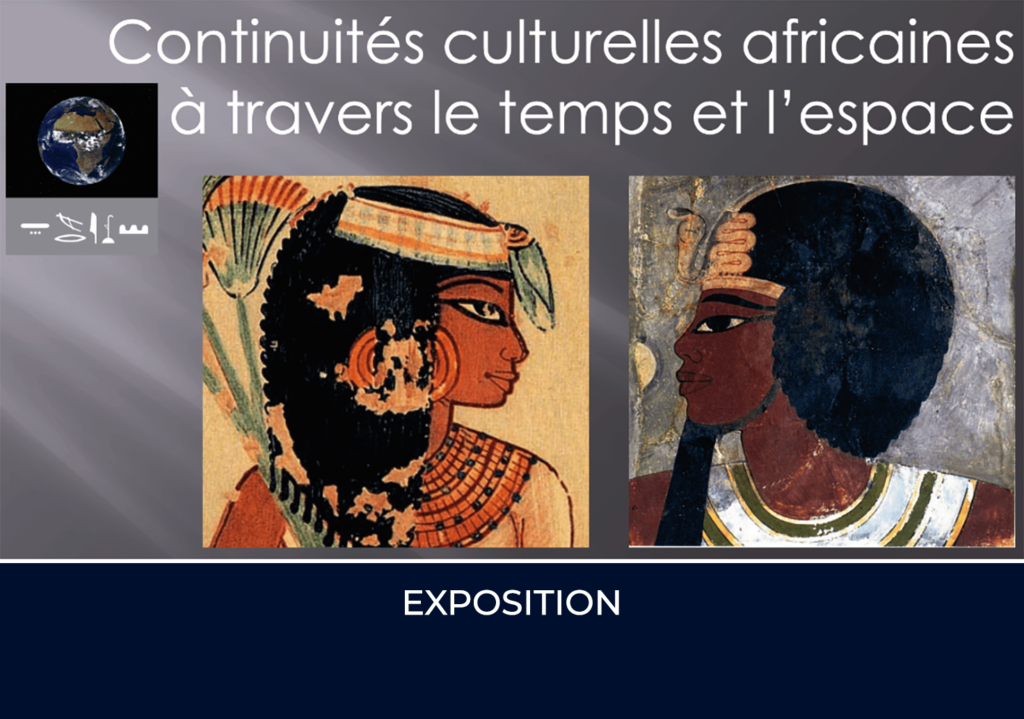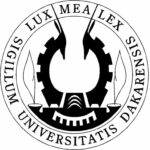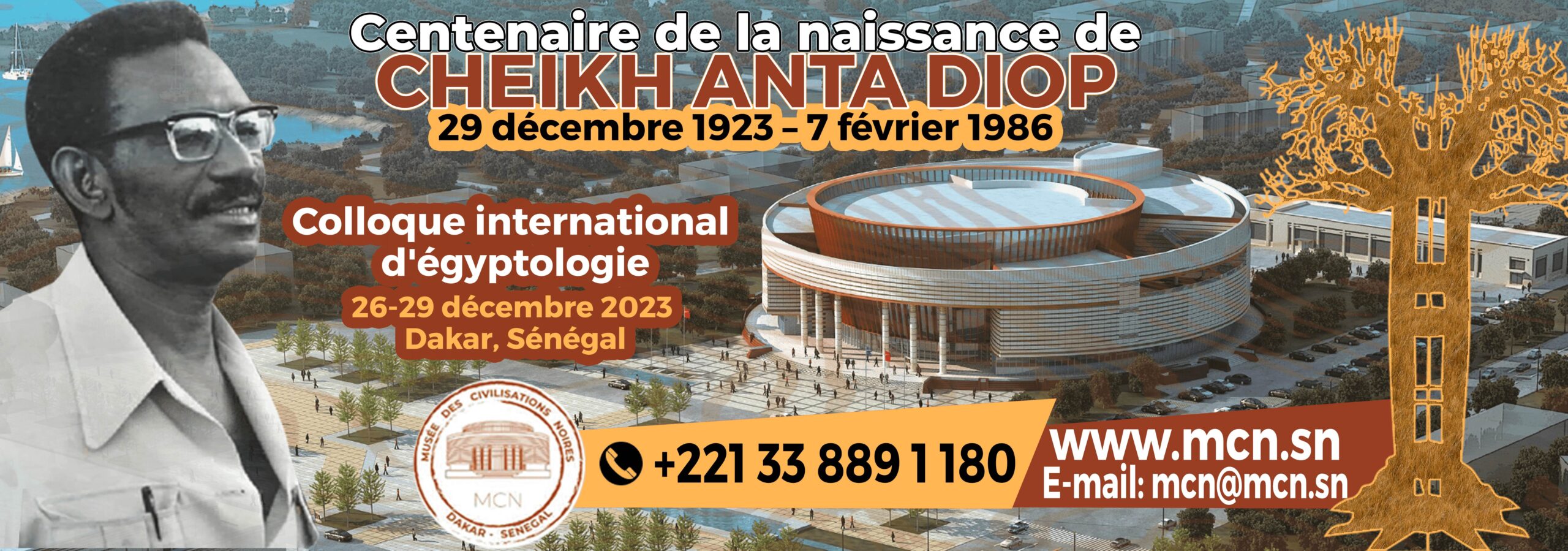
The triumph of Cheikh Anta Diop at the international Egyptology conference in Cairo, 1974″ by Théophile OBENGA
General presentation
At the University of Dakar, Cheikh Anta Diop (1923-1986) taught the ancient history of Africa some years before his death, inspiring people to take up the subject and guiding some students along the path of Egyptological research. Following in his footsteps, Historian, Egyptologist and Linguist Théophile Obenga’s research is rooted in the African perspective opened up by Cheikh Anta Diop. In this way, a community of African Egyptologists gradually emerged in the academic world of both African and European universities. In the 1990s, Théophile Obenga in the USA and Alain Anselin in the West Indies inaugurated courses that introduced students to Egyptology. Some of them would also embrace this field. In order to commemorate the centenary of the birth of Cheikh Anta Diop and to place worldwide symposium of Egyptology within a renewed scientific framework, an international symposium of Egyptology is organized in Dakar from 26th to 29th December 2023. In this perspective the symposium aims at providing an overview of the researches in various areas of Egyptology, including archaeological discoveries and methodological approaches. Thus the focus is made among others on the advancement of studies regarding relationships between the Nile Valley and the rest of the African continent during prehistory and antiquity. This symposium is also an opportunity to revisit the work of Cheikh Anta Diop in the field of Egyptology and to highlight the turning point represented by the Cairo International Symposium on the “Peopling of Ancient Egypt and the Deciphering of the Meroitic Script” organized by UNESCO in 1974. Besides, the meeting will raise a number of issues, such as the place of Nilotic civilizations in school and university curricula, access to documentary sources, and dialogue between the Egyptology community and communities of other fields of knowledge: historians, philosophers, sociologists, economists, medical doctors, linguists, literature scholars, artists, scientists, etc. An exhibition which attempts to reach a wider audience will illustrate among other aspects the various cultural continuities that exist between ancient Egyptian-Nubian civilizations and present-day African societies.
International Symposium of Egyptology 26th-29th December
Scientific Committee
Hartwig ALTENMÜLLER (Pr Dr, University of Hamburg, Germany), John R. BAINES (Pr, Oriental Institute, Oxford University, UK), Sally-Ann ASHTON (Dr Prairie View A&M University, Texas, USA), Obarè B. BAGODO (Pr, University of d’Abomey-Calavi, Benin), Mario BEATTY (Dr, Howard University, USA), Hamady BOCOUM (Pr, Black Civilizations Museum, Dakar, Senegal), El Hadj Malick DEME (Pr, UCAD, Senegal), Bintou Salouma DOUCOURÉ (Dr, UCAD, Senegal), Babacar DIOP Buuba (Pr, UCAD, Senegal), Dialo DIOP (Dr, UCAD, Senegal), Jean-Philippe GOURDINE (Dr, Lewis & Clark College, USA), Mpay KEMBOLY (Pr Dr, Loyola University of Congo and University of Kinshasa, D. R. Congo), Aboubacry Moussa LAM (Pr, UCAD, Senegal), Théophile OBENGA (Pr, Mariem Ngouabi University, Congo Republic), Yoporeka SOMET (Dr, Dedan Kimathi University of Technology Nyeri, Kenya), Aminata SAKHO-AUTHISSIER (Dr, Louvre Museum, Paris, France), Mouhamadou Nissire SARR (Dr, UCAD, Senegal), Babacar SALL (Pr, UCAD, Senegal), Walid SHAIKH AL-ARAB (Pr, Fayum University), Christof SCHULER (Pr Dr, Deutschen Archäologischen Instituts, Munich, Germany), Mahamadou Imrane SOW (Dr, UCAD, Senegal)
Organization Committee
Pr. Hamady BOCOUM (MCN), Dr. El Hadj Malick DEME (UCAD), Dr. Bintou Salouma DOUCOURE (UCAD), Pr. Aboubacry Moussa LAM (UCAD), Pr. Mouhamadou Nissire SARR (UCAD), Dr. Mahamadou Imrane SOW (UCAD), Département d’Histoire de l’UCAD, Pr. Mpay KEMBOLY (Loyola University of Congo and University of Kinshasa, D. R. Congo), Dr. Yoporeka SOMET (Kimathi University of Technology Nyeri, Kenya), Dr. Cheikh M’Backé DIOP (ANKH Journal, France), M. Jean-Paul FOUGAIN (ANKH Journal, France).
Cheikh Anta Diop’s short biography
Cheikh Anta Diop was born on December 29, 1923 in the village of Caytou located in the Diourbel region of Senegal, approximately 150 km from Dakar. After Koranic, primary and secondary studies in Senegal, Cheikh Anta Diop received dual higher education in human sciences and exact sciences in Paris, France. He published in 1954, with Éditions Présence Africaine founded by Alioune Diop, a resounding work, Negro Nations and Culture – From Egyptian Negro Antiquity to the Cultural Problems of Black Africa today which founds African humanities on a basis scientific and of which Aimé Césaire wrote: “… Negro Nations and Culture — the most daring [book] that a Negro has so far written and which will undoubtedly count in the awakening of Africa” (Discourse on the Colonialism, 1955). In January 1960, he defended his state thesis at the Sorbonne in the field of historical sociology, which will appear in two books by Éditions Présence Africaine: Precolonial Black Africa and The Cultural Unity of Black Africa. With these first three works, Cheikh Anta Diop founded the scientific history of the African continent at the same time as he inaugurated an African historical school. He returns to Senegal permanently. He was assigned to the IFAN (French Institute of Black Africa which later became the Fundamental Institute of Black Africa), then directed by Théodore Monod. Cheikh Anta Diop devoted himself partly to archaeology, then undertook to create a Carbon 14 (radiocarbon) dating laboratory within IFAN. By a Service Note dated April 17, 1963, Théodore Monod formalized, within the Department of Archeology and Prehistory of IFAN, the existence of the “Radiocarbon Dating Laboratory” headed by Cheikh Anta Diop. . In 1966 the laboratory became fully operational with the delivery, thanks to the French Atomic Energy Commission (CEA) of the Saclay Nuclear Studies Center in France, of the Intertechnique company’s transistorized radioactivity counting unit, “RA14”. Working relations have been established between IFAN and the CEA/CNRS (French National Center for Scientific Research) with in particular Jean Le Run, Jacques Labeyrie, Director of the Center for Low Radioactivities (CFR) and Georgette Delibrias, Director of the Laboratory of Radiocarbon from the CFR of Gif-sur-Yvette. Cheikh Anta Diop gives the name of Théodore Monod to the date measurement room and the name of Jean Le Run to that of the chemical treatment of the samples, as a token of recognition to the eminent scientific personality who created and directed IFAN ( until 1965) and to one of the pioneers of “Carbone 14” in France with whom he had trained at “C14”. With the exception of that of Southern Rhodesia (today Zimbabwe), it is, then, the only Carbon 14 laboratory existing in black Africa. The foundations of the laboratory were designed to support an additional floor because Cheikh Anta Diop had envisaged from the start of the project to develop and expand the activities of this laboratory which he considered to be the nucleus, south of the Sahara, of a future major African center of low radioactivity, which will eventually bring together different dating methods. Voir plus
Topics
The main themes of intervention defined for this conference are :- history,
- archaeology,
- religion,
- material culture,
- linguistics,
- historiography,
- Egyptology in academic curricula in Africa,
- the Egyptology conference in Cairo
Organizers :


